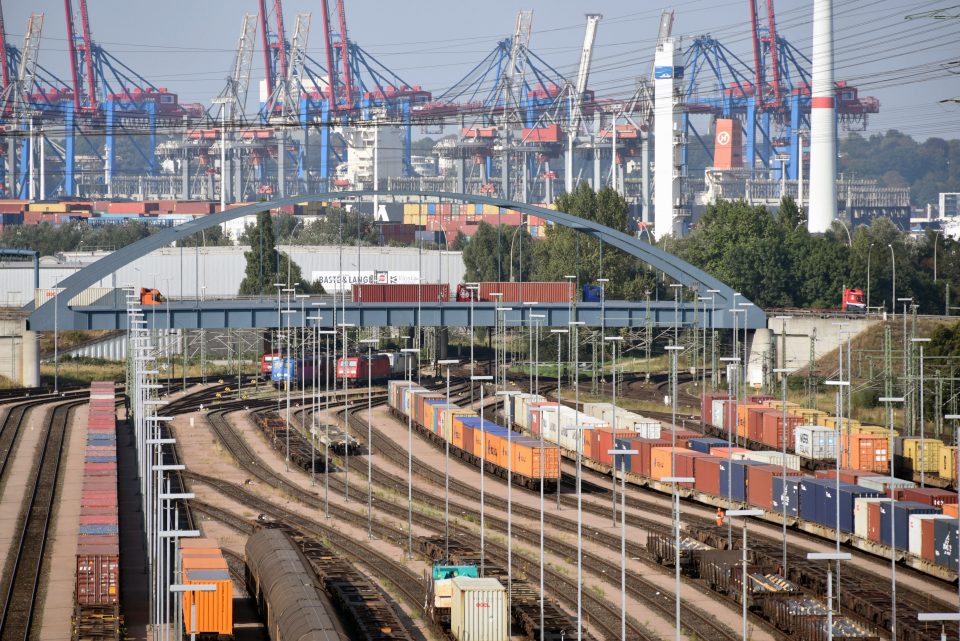German ‘Rail Freight Masterplan’ will halve track access charges

Germany has taken a landmark decision to halve track charges for rail freight traffic as part of a collective effort between the government and rail industry to cut road traffic and reduce air pollution. The Government is spending 350 million Euros to cut charges as part of its ‘Masterplan for Rail Freight’.
Federal Transport Minister Alexander Dobrindt presented the plan at a summit of rail stakeholders in Berlin, after it was hammered out in a series of meetings between the Ministry of Transport and Digital Infrastructure (BMVI) and the rail freight sector.
Powerful infrastructure
Among the key measures are: reducing costs – the BMVI says 350 million Euros will be spent on cutting track access charges for operators, who will then have more to spend on innovation; providing a powerful infrastructure – new freight routes being built and existing ones expanded, with additional tracks facilitating the use of longer trains; digitalisation and automation – innovations such as online booking of train paths will increase network capacity, while digital timetables will also speed up operations.
New and expanded routes include the Rhine Valley, NBS Rhine / Main-Rhine / Neckar, East Corridor & Ruhr-Sieg regions, while the established major corridors connecting Hamburg, Cologne, Frankfurt, Ludwigshafen / Mannheim / Heidelberg / Karlsruhe, Munich and Hanover will become more efficient as a result of the plans.
Strengthen the industry
Minister Dobrindt emphasised that the aim was to shift more freight transport to the environmentally-friendly option of rail, to increase the market share of the sector and to strengthen the industry permanently. “In the coming year the Government will significantly reduce prices for rail freight transport,” he said. “To this end we are providing 350 million Euros with the 2018 budget. This will make rail freight transport cheaper. In addition, we are investing in the expansion of the infrastructure, such as the 740-metre network for longer trains, driving the digitalisation and automation of transport and loading processes, and promoting innovation. Companies are relieved and we make them more and more competitive.”
Deutsche Bahn, parent company of DB Cargo, Germany’s principal rail freight operator, says the plan paves the way for raising the potential of transport companies, increasing the railway infrastructure and improving transport policy for freight. Ronald Pofalla, Infrastructure Manager, said: “Germany’s roads are facing a traffic disaster. The noticeable lowering of the track charges will ensure a significant improvement in the competitive position of the freight lanes. In addition to the 740-metre network, the expansion of the east corridor and the loosening of bottlenecks in the major nodes will increase the efficiency of the rail network by means of digitalisation.”
‘Important strategy’
The German Pro-Rail Alliance, which has long argued for a reduction in track access charges, described the plan as an ‘important strategy paper’ which would alleviate existing distortion of competition between rail freight and road trucks. Managing Director Dirk Flege said: “In particular, the significant reduction in train-path prices promised by Minister Dobrindt in his master plan is urgently required. The guiding principle behind this plan is that the confederation is increasing the market share of the freight lanes to its declared political goal. If the strategy is now implemented quickly, we are confident that the market share (for rail) will also be successful.”
But the alliance also said that implementation of the plan would be ‘for the next Government’, adding that action could have been taken three years ago. As recently as May, Dirk Flege said that while the halving of track access charges was ‘desperately needed’, it would only be an initial step in rebalancing the competitive disadvantages faced by the railways for many years.
‘Good decision’
Alexander Kirchner, Chairman of the Germany rail and transport union EVG, also welcomed the announcement: “An important element is the halving of rail freight rates for rail freight transport. As a result, competitive disadvantages caused by rail transport companies are being reduced and the railways become more attractive to the shippers. This is a good decision.”
The plan (in German only) is available for download in PDF format.






Cutting Trackusecosts and lenghtening Trains is not enough, wenn one sees that for all Shunting- and parking trackspace are lacking on hot spots in Germany. On the line east of Wurzburg to Munchen one can´t get almost any trackspace until the border of Austria…